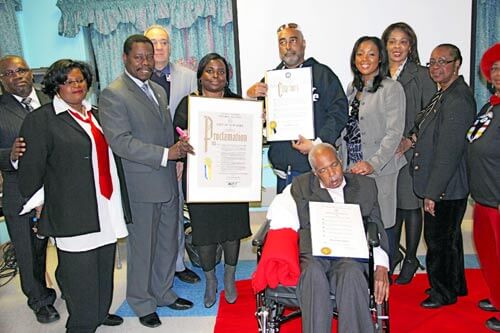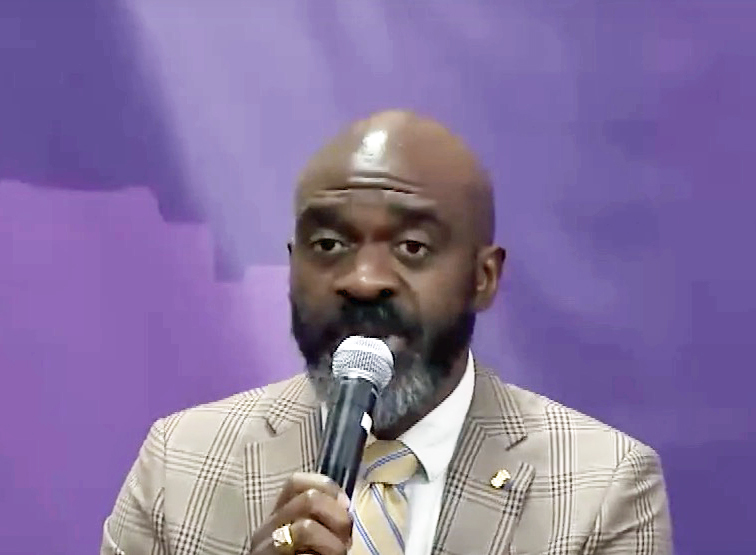From a youthful age, there resided in Julian Bond such a burning passion for revolutionary change in the socially unjust climate into which he was born, it was perhaps inevitable that activism, protest and controversy would be readily linked to the Bond persona for all of his adult life.
Bond was born in Nashville, Tennessee in 1940. Although he moved North with the family when he was just five, after his father became president of Lincoln University in Pennsylvania, his Southern roots no doubt factored into his perspective on the social standing of people of color in a society in which inequality of the races was a fact of everyday life. The determination to not be a passive bystander was evidently cemented when Bond enrolled at Atlanta’s Morehouse College, this happening in that 1950s–60s period that was a time of serious stirrings in what had become the civil rights movement. His intense feelings about being involved in the push for change would see him in a co-founding role for one of the pivotal organizations associated with the civil rights struggle, the Student Non-Violent Coordinating Committee (SNCC).
Bond was communications director for SNCC from 1961 to 1966. He traveled through states in the South, helping to organize civil rights and voter registration drives. He in fact had such a single-minded devotion to this work, he interrupted his schooling at Morehouse to invest more of his time on the road. Bond ran for and got elected to the Georgia House of Representatives in 1967, after the Voting Rights Act signed into law in 1965 allowed for greater African American participation in the process. The legislature, however, voted overwhelmingly not to seat him, because of SNCC’s opposition to America’s involvement in Vietnam and, aligned with that, Bond’s publicly voiced objection to the military draft. It took a unanimous Supreme Court ruling that Bond’s freedom of speech had indeed been violated, for him to finally take his seat in the legislature. Later, he also served multiple terms in the Georgia Senate, accruing 20 years altogether between the two legislative chambers.
Bond’s political and social interests were by no means limited to elective office in Georgia. In 1968 he led an alternate delegation (opposing the predominantly white official one) to the famously contentious Democratic National Convention in Chicago. In 1971 he co-founded the Southern Poverty Law Center (SPLC), a legal resource facility for the underprivileged. He served as SPLC’s first president, from 1971 to 1979. In 1986 Bond made a run for a congressional seat in Atlanta which turned quite bitter and must have caused much unease among veterans of the civil rights struggle, in that it pitted two frontliners from that era against each other. Bond wound up in a runoff against onetime SNCC colleague John Lewis and in what some thought at the time a low blow, Lewis injected into the contest allegations of drug use against Bond. Lewis won the seat, which he continues to hold today.
Backing off from elective office, Bond busied himself in other areas, including assorted media projects, writing and stints in academia, his wealth of experience as a civil rights revolutionary almost always the valued input he contributed to these diverse involvements. He taught the history of the civil rights movement at the University of Virginia from 1990 to 2012 and taught also at Harvard, American University and Drexel University. Another leadership role in the ongoing march for black pride came his way when he was selected in 1998 as the chairman of the NAACP. He would serve as chairman until stepping down in 2009.
Bond’s assuming chairmanship of the NAACP was probably the sort of evolution many familiar with his personal narrative would have found startling, to say the least. And chances are even he, back in the SNCC days, would have considered himself a rather unlikely prospect for leading the staid “rock of ages” of black pushback in the U.S. The fact is, though, that this was no Julian Bond “lite” that they got at NAACP or wherever else he lent his dynamic presence in latter years. The NAACP knew this and obviously appreciated every bit of Bond’s time at the helm, even reportedly prevailing on him to delay his demitting office until the organization celebrated its centenary year in 2009. There’s no question that to be familiar with the Julian Bond record is to know that at his death in August, 2015, he had been as fierce a fighter for eliminating injustice as he ever was.

























